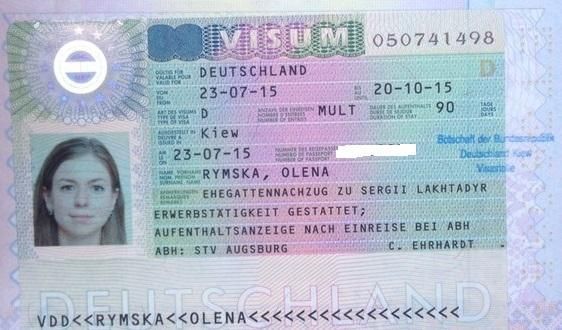
Apply to a foreign university with confidence
- Properly fulfilled documents
- Perfect motivation letter
- Support from a personal mentor
- Offers from several universities
Ways to immigrate to Germany: EU Blue Card, labor, student, investment, business, humanitarian, family union, political asylum, Pros and cons of immigration to Germany
Free consultation
Germany is a country with an open immigration policy. The state encourages immigration due to a lack of workers and low birth rates. In addition, the immigration policy is influenced by the historical past: returnees are welcomed back and immigration of Jews from the post-Soviet space is encouraged. Today, more than 12 million people that live in Germany were born outside the country — Germany takes second place by the number of immigrants right after the United States[6].
In order to immigrate to Germany, it is necessary to brace yourself for bureaucratic red tape: the candidate will need to collect more than a dozen documents, the processing and translation of which may take even more time than applying for the visa itself. On the other hand, moving to Germany is relatively inexpensive due to the geographical proximity of the state (if we speak about Europe) and reasonable visa fees. In addition, candidates who have correctly collected all the documents without any problems receive permission to move to Germany. The most important thing is to carefully study all the requirements for the desired type of immigration and prepare for it in advance without unnecessary anxiety and haste.
| Immigration | Exam | Consideration period | Condition |
|---|---|---|---|
| Student | Yes | 4-8 weeks | University studies, preparatory courses, vocational education |
| Labor | No | Individually | High qualification with an invitation, science and research work, doctors, artists by invitation, opening a business, Freiberufler (a special form of freelancing in Germany), finding a job, advanced training and subsequent employment |
| Marriage | Yes | From 1 month | Fiancé(e) of a citizen or resident |
| Family reunion | Yes | Individually | Spouse, a close relative |
| Resettlement program | Yes | Individually | German roots, Jews and ancestors of Jews affected by the persecution |
| Humanitarian | No | 6 months | Refugees and people seeking protection |
Please note that citizens of EU/EEA member states, Switzerland and some other countries are exempt from the German long-stay visa requirement. They usually apply for a residence permit right after their entry to Germany without a visa. Check the complete list of exemptions on the Federal Foreign Office website.
| Document | Cost | Valid | What for | Reason for obtaining |
|---|---|---|---|---|
| Visa D | 85 USD | 3-6 months | Entry for registration of residence permit / Blue card | - |
| Blue card | 124 USD | 4 years | Work | Visa D |
| Residence permit | 6-36 months | Study, work, family | Visa D | |
| Permanent residence | 153 USD – 282 USD | ∞ | All rights and obligations other than political | Blue card, residence permit, Jewish immigration |
| Passport | 288 USD | ∞ | All rights and obligations | Residence permit, permanent residence, repatriation |

To obtain a D visa, you must collect the required documents and personally submit them to the German Consulate. Processing an application for a visa will take from a week to several months — depending on the method of immigration, after which it will be possible to pick up a passport with a visa.
Please check with the German Embassy in your home country for an updated list of documents requirements for each type of visa.
You can immigrate to Germany through education if you enroll in a university or vocational school and get a student visa, and after graduation, you can get a job and stay in Germany. Obvious arguments for this method of immigration are a low cost of higher education and the absence of German language requirements if the training program is in English. A student visa can be obtained not only by those who already have an invitation from the educational institution but also by applicants who have just submitted application documents or take foundation courses in Germany — the main goal is to show that a future student has money to live before and after admission, as well as the ability to pay tuition. If the university is ready to accept the candidate, and the candidate has enough evidence of funds, then he will receive a visa and a residence permit without any issues when he arrives in Germany.
More details about education in Germany.
Main article Student immigration
Main article: German Universities
Main article Student immigration
EU/EEA nationals are allowed to work for a maximum of 20 hours a week during term time (including volunteering).

To immigrate to Germany as an employee, it is necessary not only to find a job in advance and receive an official invitation from the future employer, but also to confirm your degree and/or work experience. When this is done, you can apply for a work visa. It will allow you to enter the country and give the right to obtain a residence permit or a Blue card.
| Labor immigration | Valid | Exam |
|---|---|---|
| Blue card | Up to 4 years | No |
| Businessmen, Freiberufler (German freelancers), scientists and researchers, artists | 6–36 months | No |
| Doctors | 6–36 months | Yes |
Skilled university graduates who have found an employer in Germany can enter the country on a work visa and receive a blue EU card. The blue card is an analog of a residence permit, but with better conditions: it is valid for 4 years, allows you to stay outside Germany and the EU for up to 12 months, and obtaining it does not require the knowledge of German. With these cards, the European Union attracts the best professionals, providing them with good living conditions. Registration of a blue card takes about 6 weeks after applying. The card gives the right to work and social guarantees.

Requirements for international personnel exchanges within the company or for those who enter as contractors may slightly vary.
Visa D can also be obtained for a job search in Germany. All requirements for documents for labor migration are preserved, but you do not need to have a confirmation of the employment. Instead, you need to confirm the availability of funds for the duration of the job search — in this case, a visa will be issued for six months.
Sometimes employment is possible only after recognition or advanced training in Germany. In this case, in addition to the contract with the future employer, documents about the planned training must be attached.
Immigration of entrepreneurs and investors is important for Australia, as well as for many other countries: foreign entrepreneurs and investors provide capital inflows, create jobs, and fill up the shortages of goods and services in the market. Before immigration, the businessman must analyze the local market, negotiate with potential partners, states and territories, if necessary, present a business plan. In other words, the host state must believe in the economic success of the future enterprise.
Business immigration to Germany involves two types of activity. The first is entrepreneurship, and the second is private business when a highly qualified professional works for himself. In German law, he is called a Freiberufler, or a freelancer. This is not just any freelancer though — the Freiberufler is a certified specialist, registered legally. He is not considered an entrepreneur and does not pay entrepreneurial tax, although he can hire assistants. Such professions include consultants, educators, translators, writers, psychologists, nutritionists, lawyers, dentists, and some others.
It may seem that immigration through business is a very simple way because to open a company you can have only 1 USD in the authorized capital, and a Freiberufler is completely exempt from such a requirement and taxes. However, everything is not so simple: the amount of the authorized capital is taken into account and matters when deciding whether to issue a visa to a future businessman, and the future free employee must prove his professionalism. After the candidate has prepared his business project or documents on professional qualifications, he can apply for a visa. If it is approved, it will only be necessary to enter the country and apply for a residence permit.

This is the easiest way to immigrate to Germany that does not require language skills, education or professional experience. For marriage immigration, you need to get a special visa for the fiance — such a visa is needed to enter the country and marry a citizen or resident of the country. After that, you can easily get a permanent residence in Germany after 3 years of consecutive stay. The disadvantage of this type of immigration is a large number of bureaucratic obstacles that prevent the arrangement of a fictitious marriage. If the migration service discovers that the marriage is fictitious, then the fraudster is extradited from the country. Same-sex marriage is also legal in Germany.
According to the rules of the German Federal Foreign Office, a certificate can be omitted in a number of exceptional cases, such as:
Сlose relatives of a German citizen or resident (these are spouses, minor children and parents) have the right to immigrate. Relatives who require medical care in Germany can also go there. To immigrate to a loved one, you need to prove family ties with him with the help of birth certificates, marriage certificates and other documents in accordance with the case circumstances[11]. After applying for a visa and entering the country, the candidate receives a residence permit.

People who cannot stay in their own country due to persecution or humanitarian disaster can receive asylum in Germany. In this case, the candidate must provide evidence that will convince the immigration service to give him protection. To obtain asylum, you must arrive in Germany with any visa and apply to the refugee reception center. Arriving illegally and applying for help at the border will get you a temporary housing for the duration of the proceedings. They are also given food, personal hygiene products, clothing, free medical care and pocket money. In addition to evidence of persecution, like with any other method of crossing the border, you must have your identification documents that the immigrant has managed to take with him: passport, driver's license, birth certificate.
Those who fled from their country because of a humanitarian catastrophe — war, famine, genocide and massive violations of human rights can also count on protection.
It must be reported if the refugee was subjected to torture, serious bodily harm was inflicted, or there is a threat of his death penalty at home due to persecution based on the indicated signs.
When applying for a visa for the purpose of entry and obtaining a residence permit or permanent residence, the candidate has the right to take with him close family members — spouse and children. In this case, you need to apply for a visa for each family member. Sometimes a German language proficiency test is required not only from the main candidate but also from members of his family — this requirement depends on the method of immigration. All family members must apply and be present when receiving a visa in person.

German passport gives the immigrant political rights and the possibility of visa-free entry to most countries of the world, however, to obtain it, you will need to renounce your previous citizenship. Since work rights and social guarantees can be used with a residence permit, permanent residence and the Blue Card, obtaining citizenship is not always a vital step for an immigrant.
60+ countries
we work with
$1,000,000 saved
by students through scholarships
6,400 offers
our students got